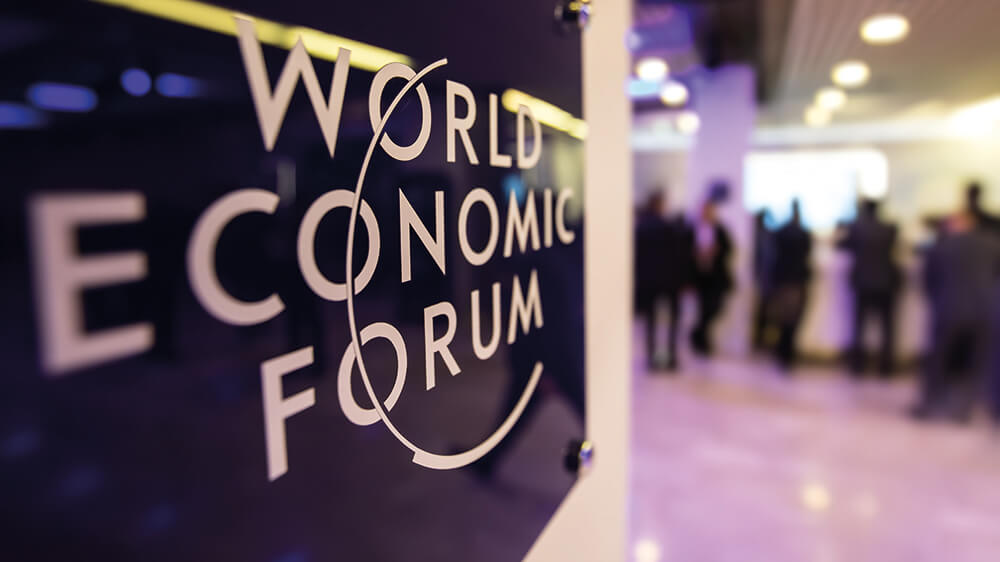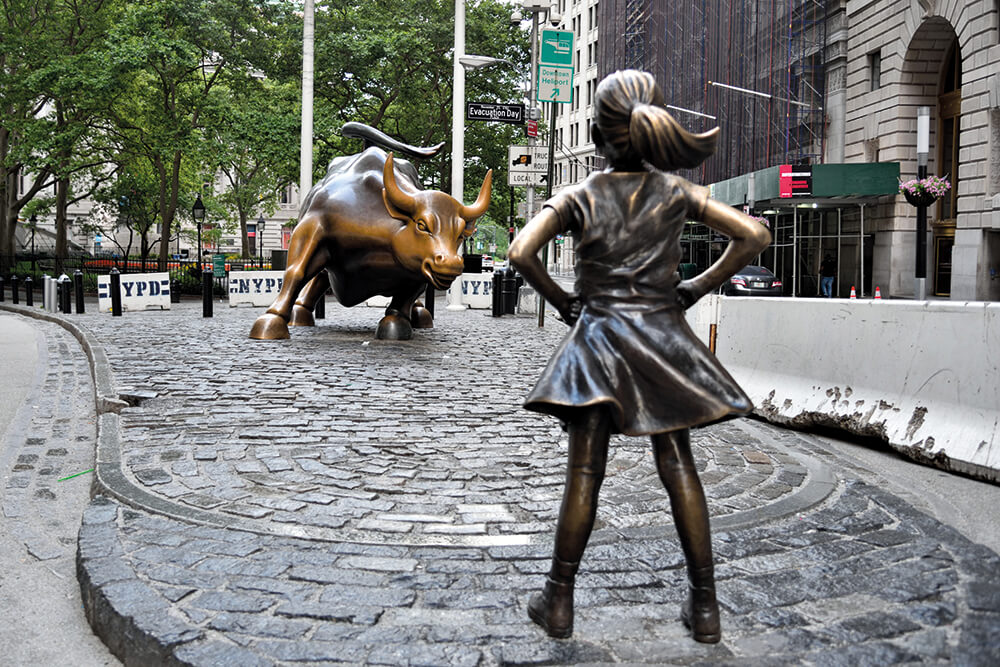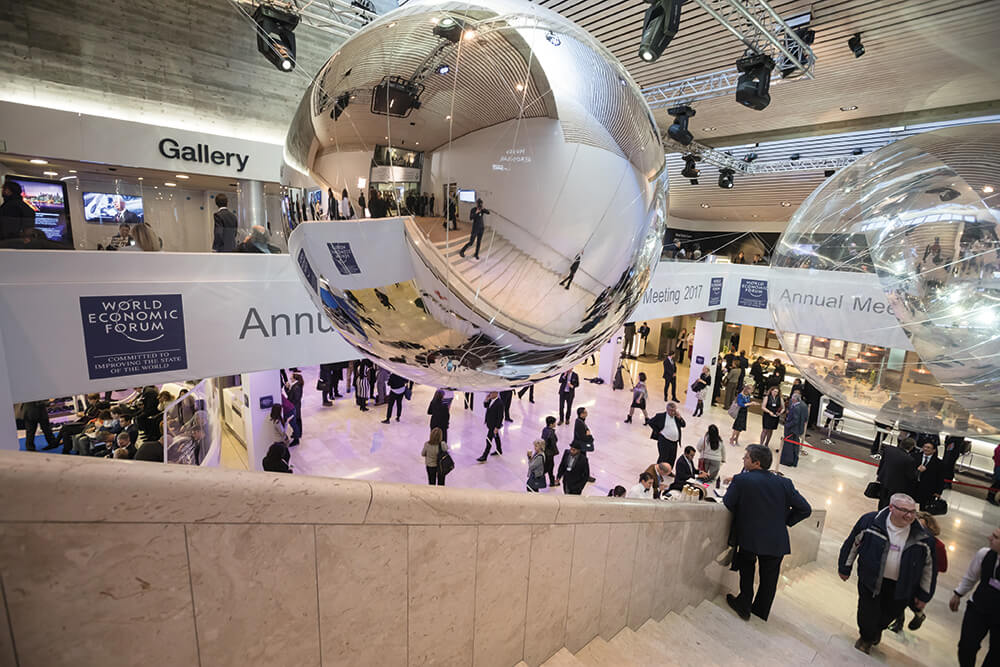WEF founder Klaus Schwab, troubled by contradictions, ensures a level playing field, as JOHN STARR reports
THE WORLD Economic Forum (WEF) Annual Meeting in Davos, Switzerland (January 23–26), will be discriminating in favour of female participation in a dramatic, meaningful way that may help resolve what has, up to now, been a tricky problem. Has WEF founder Klaus Schwab finally resolved to get tough on the many contradictions that bother Davos observers?
The entire 2018 event, which will bring together 1000 of the world’s top corporate leaders, is to be chaired by women. Among the seven chosen ones are Christine Lagarde, head of the IMF since 2011 and ranked eighth most powerful woman in the world by Forbes in 2017. Look out too for Ginni Rometty, chairman, president and CEO of IBM – the first woman to lead the company – who also squeezed into the Forbes top ten.

In a 2017 report, the WEF claims it is going to take 217 years to close the gender gap in terms of pay and employment opportunities. (Worryingly, and perhaps bizarrely, they upped their previous annual forecast by 47 years: what on earth can be happening?)
Despite pleas some years ago from Klaus Schwab that organisations ensure that one in four of their delegates to Davos are women, not enough progress has been made. In 2017 some 80 percent of participants were male: an improvement from the turn of the century (when WEF gatherings were presided over by small groups of middle-aged men known not always affectionately as “manels”) but not good enough. This chairwoman initiative is going to get things rolling.
Harvard’s Samuel Huntington coined the expression “Davos Man” to characterise the “gold collar workers” that congregate at the WEF Annual Meeting. According to Huntington, Davos Man has no concern for the nation state and is uninterested in traditional organic societies. Although this may have been fair comment when the good professor was speaking, it is hardly fair now – although it is still a common criticism.

China’s participation at Davos has been substantial for many years and at the last meeting, President Xi Jinping led a delegation of his country’s top business leaders who clearly still have a place in their hearts and minds for the nation state. There are also plenty of non-business delegates at Davos that are highly vocal and often openly critical of free markets. Schwab himself has been consistent in calling for a taming of transnational capitalism and is the champion of stakeholder inclusion.
He has pointed out that it was a crisis driven by globalisation that led to the election of Donald Trump and Brexit. So, who is Davos Man? The movers and shakers who control the world’s top corporations (and hardly ever seem to be seen at the earnest organised sessions because they are too busy networking)? The civil sector, academics, journalists, religious leaders and other non-business people who, in aggregate, outnumber the latter group? Or the founder himself who, clearly, is sometimes uncomfortable in the gathering he organises?
In 1971, Schwab founded the European Management Forum. The significance of its setting, Davos, was not lost on him. Davos was the setting too for Thomas Mann’s novel The Magic Mountain, where the sanatorium is a microcosm for Europe. This first forum was set up to answer the challenge facing European businessmen who needed to catch up with their US counterparts. In 1987 the name was changed to World Economic Forum with Davos, like the sanatorium, as a place to relax and open-up (in this case to the stakeholder concern mentality that Schwab still enthusiastically espouses).
One gets the feeling that the WEF founder would like to give some of the corporate leaders a good shake and direct them to the task in hand: for 2018 it is “Creating a Shared Future in a Fractured World”. Like the rest of us, the WEF is “Committed to Improving the State of the World”.
Instead, for the uber-wealthy white males who debate inequality and the need for diversity and travel by private jet to consider climate change issues, there are the super-smart, unofficial parties. But Schwab is dead-against the “caviar, champagne and expensive wines, which are out of character with the mountain village”. Then there is the cosying up of masters of the universe to central bankers and the world’s top political leaders (who would sometimes be better advised to spend their time working on more pressing matters at home).

Davos is an important world stage and of that there is no doubt. WEF successes include the diplomacy that in 1988 helped pull Greece and Turkey back from the brink of war. Representatives of the two Koreas met up through the Forum in 1989, but sadly the momentum was lost. Three years on, FW de Klerk and Nelson Mandela were seen together for the first time at an international gathering. In 1980 Henry Kissinger used Davos to warn of a Soviet military build-up. But Davos missed the collapse of the Soviet Union, failed to foresee several major financial collapses and was blindsided by the bursting of the tech bubble in the late 1990s.
When asked about the pride he has in his work, Klaus Schwab points to health initiatives, including the Global Alliance for Vaccines and Immunisation (GAVI) which has protected 580 million children and saved many, many lives. Another example of his work is the Global Fund to Fight AIDS, TB and Malaria. He is indeed a man of noble causes.
Schwab will celebrate his 80th birthday soon after Davos 2018. By the time he was 27 years old he had earned five degrees in economics and mechanical engineering, and four years later he became the youngest university professor in Switzerland. There is no sign of him letting up, although he seems to be passing on some of his day-to-day responsibilities. Perhaps he will want to give thought to finessing certain of his extraordinary achievements. There are speculations about a successor, but Klaus Schwab is confident that the right man – or woman – will be found within the board of trustees.
The founder of the World Economic Forum is a sociable man who follows his own tastes. He is an outstanding skier and a devil on the dance floor. This year there will be no shortage of partners waiting for him at the top table.




























